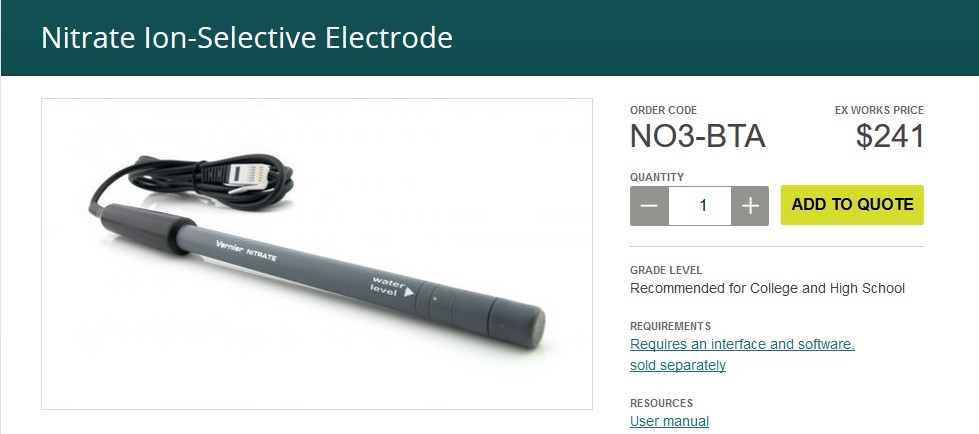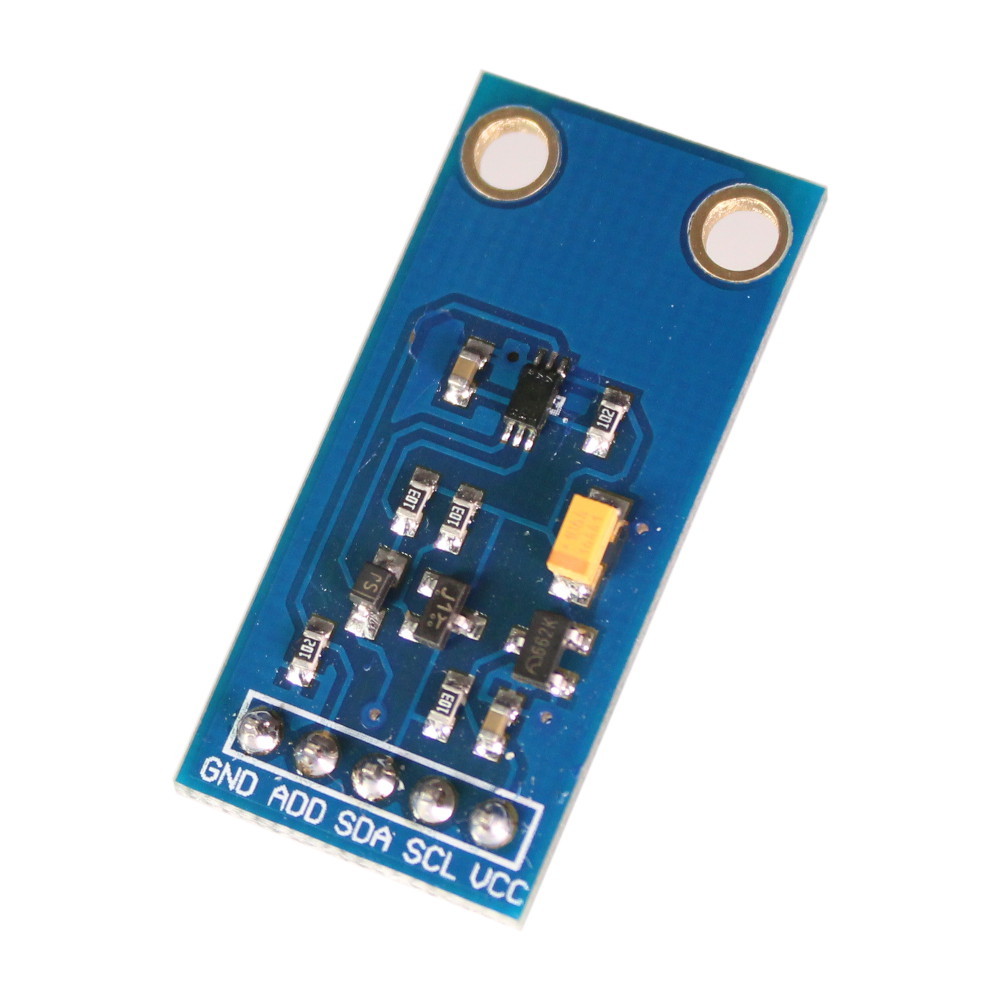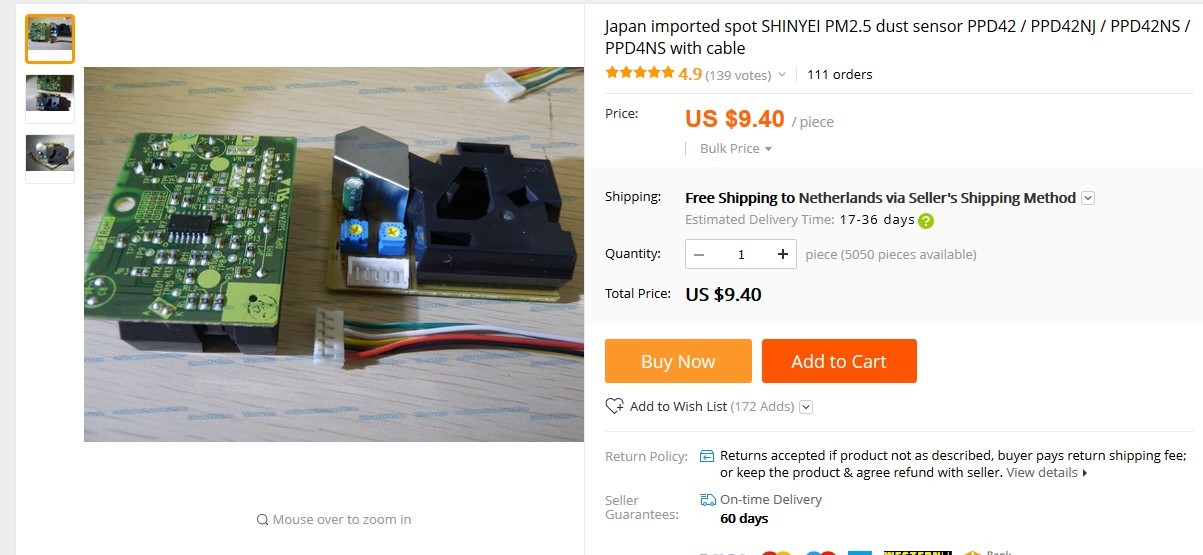[44 - nitrate concentration]

[44 - nitrate concentration]

very interesting chip/module, not available yet.
The BME680 builds on Bosch Sensortec’s existing BME280 environmental sensor module. By integrating a new gas sensor, the BME680 delivers superior environmental measurement performance, made possible by the internal compensation and calibration of the gas, pressure, temperature and humidity sensors. The gas sensor can detect Volatile Organic Compounds (VOCs) down to the ppm range.
Pressure accuracy of ±0.12 Pa provides altitude information to ±1m, suiting it for applications such as indoor navigation with floor level tracking. Fast response time for measurement of humidity and ambient temperature enables new applications such as personalised weather information and air quality monitoring.
An offset temperature coefficient of 1.5 Pa/K enables altitude stability over temperature of 12.6 cm/K. This is important in applications requiring the user’s vertical position within a building over a wide range of ambient temperatures.
The BME680 is equipped with both I²C and SPI communication interfaces. Three power modes and oversampling rates for pressure and temperature measurements that can be configured separately help designers to easily adapt the BME680 to different applications. An integrated IIR filter eliminates short-term measurement fluctuations caused by potential environmental influences.
[7 - weight]
LoRa enabled bathroom scale ? LoRa enabled cat litterbox ?
[45 - light intensity]

With the BH1750 I2C Light Sensor intensity can be directly measured by the luxmeter, without needing to make calculations. The data which is output by this sensor is directly output in Lux (Lx).
night: 0.001–0.02
moonlightnight:0.02–0.3
cloudy indoor:5–50
cloudy outdoor:50–500
Sunny indoor:100–1000
BH1750 I2C Light Sensor intensity
Nice cheap device. You’ll probabaly need some filter to measure direct daylight in the field. Depending on place and time those values can be well over 100.000 lux This device only has a range from 0-65K.
Wide 0.045 Lux to 188,000 Lux Range
Small, 2mm x 2mm x 0.6mm UTDFN-Opto
VCC = 1.7V to 3.6V
ICC = 0.65μA Operating Current
-40°C to +85°C Temperature Range
Device Address Options
1001 010x and 1001 011x
PCB size:(LW)1.32*1.05cm/0.52"0.41"
[15 - liquid tank levels]
I wrote a little sketch for an ESP8266 to read out an MH-Z19 CO2 sensor: https://github.com/bertrik/mhz19
This sensor uses the optical measurement principle, which is supposed to be superior to electro-chemical sensors.
This kind of sensor used to be quite expensive, but now it can be found on sites like aliexpress for about E22,-
The code probably be easily ported to other processors, the sensor needs a voltage of at 3.6V-5.5V and interfaces using a UART at 3.3V.
BIG DUTCH ONLINE SENSOR SHOP LIST - NON INDUSTRIAL
list can be updated (your input pls)
[ 29 - dust (and cigarette smoke) ]

[ 46 - angle indicator ]
[ 36 - tilt sensing ]